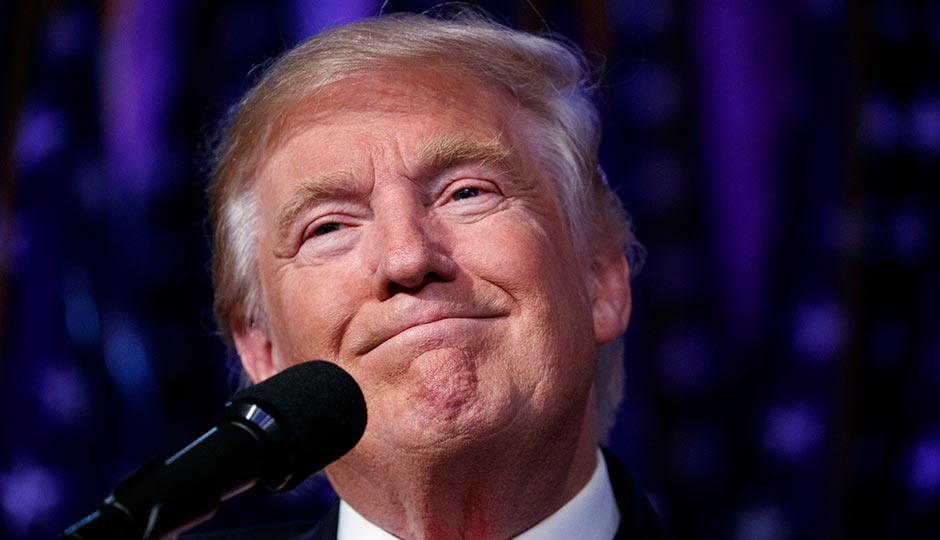The “Stark” Political Calculus for Philadelphia Latinos

Photo by Evan Vucci/AP
It was supposed to be the election where Latinos flexed our muscle – after all, Donald Trump started taking potshots at us from the day he announced his candidacy.
And we did rally. By all accounts Latino early voting “surged” in places like Nevada, Colorado, and Arizona. On Election Day itself, Latino voter turnout yielded some real victories: Darren Soto became Florida’s first Puerto Rican congressman; New York’s Adriano Espaillat is the first Dominican elected to serve in Congress; Catherine Cortez Masto was elected in Nevada, becoming the first Latina in the U.S. Senate; and Maricopa County Sheriff Joe Arpaio – detested for racially profiling Latinos and incarcerating immigrants in his tent prison – was roundly defeated in Arizona.
According to Texas state Representative César Blanco – who also serves as the interim director of the Latino Victory Fund – Latino millennials turned out in record numbers in Arizona, and Latina voters had an especially strong showing in El Paso, Texas (his legislative district).
In California, three in 10 of those voting identified as Latino, and in Philadelphia the polling places in predominantly Latino neighborhoods did much better than usual.
But it wasn’t enough.
“What those happy with a Trump presidency often say is, ‘We’re taking our country back.’ We are about to find out what that means,” said attorney Caroline Cruz. “The silent majority, with some very loud components, stand unequivocally with Trump. Ultimately, Latino voters did not come out in the numbers that are possible. The political calculus is stark and decisive.”
For Boricua activist Rafael Álvarez Febo, this election “shows that the ugly grip of racism, fear, and division lives in this country. … America has not dealt with race and class in ways that change the paradigm.”
Over at CNN, Van Jones spoke about the election results as “a whitelash against a changing country,” and it is hard to disagree — white men and women formed the backbone of Trump’s support, and many of his talking points hinged on the default “otherness” of immigrants, refugees, Muslims, “inner city” African Americans and Latinos … and the perceived “truthiness” of speaking about them in harsh and unvarnished terms.
Even the demographic thought to be most attuned to the historical significance of Hillary Clinton’s run and least enchanted by Trump’s gender politics — women — were part of that “whitelash.”
According to a preliminary Quartz dive into the exit poll numbers, 62 percent percent of white women without a college education, and 45 percent of those with a college education, supported Trump. Compare this to Trump support from non-college educated Black women (3%), non-white women (16%) and Latinas (25%); or college-educated Black women (6%), non-white women (19%) and Latinas (28%).
The numbers also point to a disheartening truth about Latinas: a quarter of us voted for Trump despite his virulently anti-Latino rhetoric. A lot of Trump’s vitriol — and consequently his supporters’ vitriol — during the campaign was directed at immigrants, especially Mexican immigrants. The vitriol has too often turned into brutish expressions of bigotry: According to the LA Weekly, hate crimes against Latinos have spiked 69 percent since Trump became a candidate. I can only read the too-high-for-self-respect level of Latina support for Trump as part and parcel of the racism, colorism, and economic and class bias that too often infect *our communities.
In his acceptance speech, Trump steered clear of the biased and divisive rhetoric that characterized his campaign, but neither I nor most Latinos I spoke to were buying it.
“What is going to happen to the most vulnerable people in our communities?” asked María Serna, a human rights activist who has lived in Philly for the past 20 years. “People elect the governments they want, and Donald Trump is a reflection of that.”
So where do we go from here?
“Without our engagement … this race would not be as close [as it was],” said Adán Mairena, the pastor of West Kensington Ministry. “And our numbers and political sophistication will only grow. We need to realize and own the fact that we are now a force to be reckoned with.”
“We shouldn’t expect anything from [politicians],” said Juan Carlos Romero, the former owner of Taquitos de Puebla who now owns a catering company in the city. “We have to keep organizing ourselves, in our communities, to change the policies that impact us. [With Trump’s win] I see an immigration situation that will favor favor thousands by sacrificing millions. And that will make us take to the streets. Maybe Trump will be the president that unites all immigrants in opposition to him.”
“If ever there was a call to action for communities of color, this is it,” said Miguel Andrade, an activist with Juntos and Mijente, who was formerly undocumented. “This is the moment for the Latino community to realize the power we have and really fight for all minorities in the United States.”
That will mean battling numbness.
I’ve spent most of Wednesday in a fog, stunned into stillness and even — atypically for sure — silence. On Wednesday night people are gathering in Philadelphia even as I type this, to demonstrate their opposition to Trump’s proposed agenda … and I’m not there.
But there is tomorrow. And another gathering (this time Philly women in formation, vigil and protest), and I’ll be there.
There are other tomorrows I’ll be there for, too — standing up, in formation with others who reject the whitelash, and who repudiate the hatred for which it served as proxy.
Because this is the thing both President-elect Trump and those who elected him need to know: There is no America — much less a great one — without us in it.


